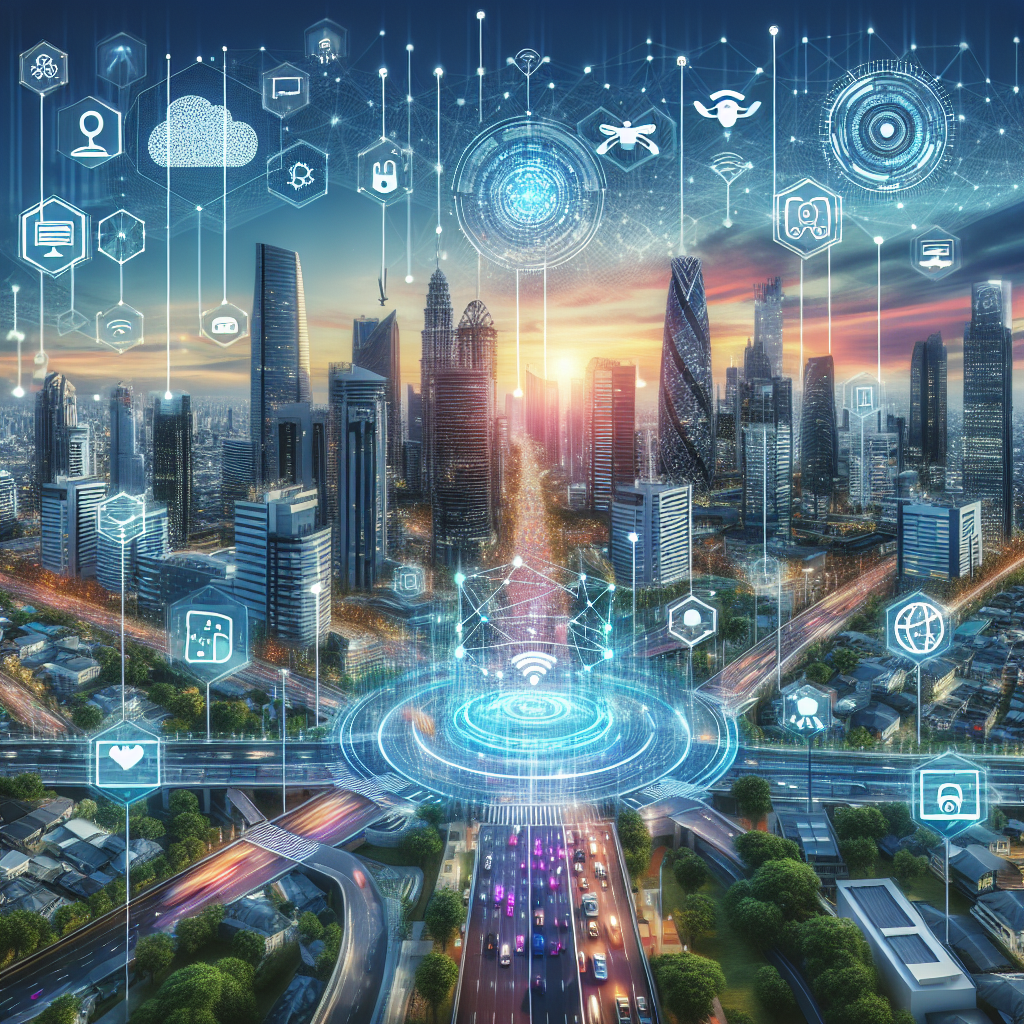As urbanization continues to accelerate, the integration of artificial intelligence (AI) has emerged as a crucial factor in the development of smart cities. By leveraging AI, cities can improve infrastructure, optimize resource allocation, and provide sustainable solutions tailored to the needs of their residents. This article delves into how AI contributes to the formation of smart cities and the transformative effects it has on urban living.
Understanding Smart Cities
Smart cities employ cutting-edge technology to enhance the quality of life for their inhabitants, streamline municipal operations, and ensure long-term environmental sustainability. Central to this concept is the use of data, sensors, and AI to make informed decisions that positively impact urban environments.
Key Components of Smart Cities
- Smart Infrastructure: AI-driven systems manage transportation, utilities, and public safety more efficiently.
- Data Analytics: Real-time data collection and analysis inform city planning and operations.
- Sustainability: AI helps to promote eco-friendly practices and reduce carbon footprints.
Now, let’s explore the specific ways AI is transforming cities into smart cities.
AI-Powered Transportation Systems
Transportation is a vital component of urban life, and AI is revolutionizing how cities manage traffic flow and public transit. AI-powered traffic management systems can predict and alleviate congestion, reducing commute times and improving air quality. Autonomous vehicles, enabled by advanced machine learning algorithms, are set to enhance public transportation and reduce reliance on private cars.
Examples of AI in Transportation
- Predictive Traffic Management: Cities like Los Angeles use AI to optimize traffic signals and reduce bottlenecks.
- Autonomous Public Transit: Trials of self-driving buses in countries like Singapore signify a step towards more efficient public transport.
Smart Energy Management
Efficient energy management is crucial for sustainable urban development. AI technologies can monitor energy consumption patterns and optimize the distribution of electricity to reduce waste. Smart grids, powered by AI, ensure a balance between energy supply and demand, promoting renewable energy sources and enhancing grid reliability.
Benefits of AI in Energy Management
- Demand Forecasting: AI algorithms predict energy demand, allowing better resource allocation.
- Renewable Energy Integration: AI supports the integration of solar, wind, and other renewable energy sources into the power grid.
- Energy Efficiency: Smart homes and buildings utilize AI to minimize energy usage and enhance sustainability.
Enhancing Public Services with AI
AI-driven solutions are transforming public services, making them more responsive and efficient. For instance, predictive analytics can enhance emergency response times, while AI chatbots can provide residents with 24/7 access to municipal information and services.
Practical Applications
- Emergency Response: AI systems analyze data from various sources to predict potential disasters and assist in resource allocation during emergencies.
- Citizen Engagement: AI-powered platforms facilitate better communication between city officials and residents.
AI in Waste Management
Effective waste management is essential for maintaining a clean and healthy urban environment. AI can optimize waste collection routes, predict waste generation patterns, and encourage recycling through intelligent sorting systems.
AI Solutions for Waste Management
- Route Optimization: AI algorithms design efficient waste collection routes, saving time and fuel.
- Predictive Maintenance: Sensors and AI monitor waste bins and collection vehicles to ensure timely maintenance and reduce breakdowns.
- Recycling Enhancements: AI-powered sorting machines improve recycling rates by accurately identifying materials.
Urban Planning and Development
AI aids urban planners in designing smarter, more livable cities. By analyzing vast amounts of data, it can predict population growth, housing needs, and the impact of new developments on existing infrastructure.
AI in Urban Planning
- Predictive Analytics: AI models forecast urban growth trends, guiding the development of residential and commercial areas.
- Simulation Models: Urban simulation models assess the impact of proposed projects on traffic, environment, and public services.
- Smart Zoning: AI helps in creating zoning laws that optimize land use while preserving community interests.
Challenges and Ethical Considerations
Despite the numerous benefits, integrating AI into smart cities presents challenges and ethical considerations. Data privacy, cybersecurity, and the digital divide are critical issues that need to be addressed to ensure equitable and secure AI implementation.
Addressing Ethical Concerns
- Data Privacy: Implementing stringent data protection regulations to safeguard residents’ personal information.
- Cybersecurity: Developing robust security protocols to prevent cyber threats and ensure the safety of AI systems.
- Digital Inclusion: Ensuring all residents have access to the benefits of AI, regardless of socioeconomic status.
In conclusion, AI plays a pivotal role in shaping the future of smart cities. By enhancing transportation systems, energy management, public services, waste management, and urban planning, AI contributes to creating sustainable, efficient, and livable urban environments. Addressing the associated ethical and security challenges will be crucial in realizing the full potential of AI in developing smart cities.

